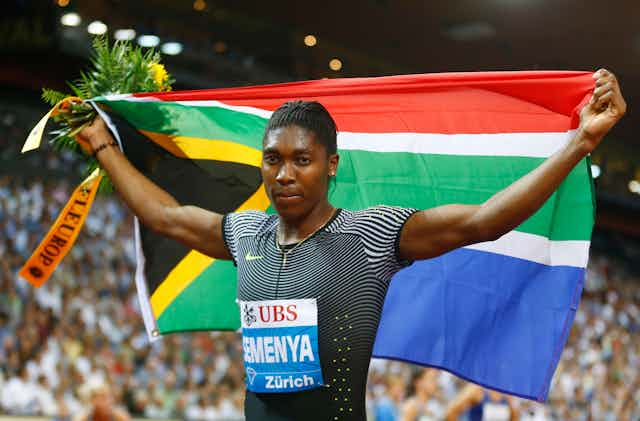South Africa fancies itself to be passionate about sports and over the past two decades has launched a series of initiatives to promote women’s participation. But it doesn’t have a great deal to show for it.
Women still remain underrepresented in all sports in the country. The best example is at professional levels where the nation’s main sports, cricket, rugby and football, have yet to consider establishing domestic leagues for women.
This is in marked contrast to England and Australia, for example. In England where cricket, rugby and football also hold sway administrators have set up professional leagues for women. Australia also has professional leagues for women in cricket, rugby and football. India, too, is set to launch a women’s cricket league.
Although numbers are hard to come by, the above comparison shows how far women lag behind in South Africa. This is despite the fact that it has adopted a number of declarations and passed laws to remedy the situation. For example, South Africa was one of the first countries to adopt the Brighton Declaration on Women and Sport passed nearly 23 years ago to increase women’s participation in sport.
In addition, a number of initiatives have been launched to foster a sporting culture more conducive to the involvement of women. These included a National Strategy for Women and Sport which focused on both the grassroots level, helping more women to take part in sport, and the elite level, supporting those with potential to reach the highest levels – the Olympics.
Policy statements from the department of Sport and Recreation South Africa also articulate the importance of providing equal opportunities for women in sport.
Fast forward to 2017 and there’s little to show for all this activity. Our attempts to garner more information about women and sport in South Africa and the country’s national strategy have yielded few results. Data on the number of women and girls participating in sport are not readily available, despite the requirement that all sport bodies submit membership statistics to the department of sport. Nor has the department set out detailed plans on how it intends to ensure equal opportunity in sport for women.
Letter of the Law
The South African government has introduced laws to promote equality, representation and redress in sport. These include:
The National Sport and Recreation Amendment Act, which was passed 10 years ago to “redress the inequalities” in sport and recreation in South Africa. The act requires federations to make provision for women and disabled people to participate at the top level of sport.
The South African White Paper on Sport and Recreation was released in 2012. Here, the department committed to putting “special emphasis” on the inclusion and promotion of priority groups, of which women are one.
The 2012 Transformation Charter for South African Sport identified women as a marginalised group, calling broadly for their increased access, representation and opportunities in sport.
The South African Sports Confederation and Olympic Committee (SASCOC), which oversees high performance sport in this country, developed an Operation Excellence programme to provide financial support to individuals identified as potential future medal winners at international competitions.
Olympic medallists, including canoeist Bridgitte Hartley, runner Caster Semenya and javelin thrower Sunette Viljoen, have all been beneficiaries of the programme.
So where is the country now?
Parity remains elusive
Parity between men and women has not been achieved. According to the most recent document available on the SASCOC website (updated October 2015), of the Olympic athletes receiving support, nine out of the 30 athletes (30%) are women. Of the 20 coaches who work with these athletes, three (15%) are women.
According to the department’s latest strategic plan (2015 – 2020), current participation levels of women and girls at grassroots level is “particularly poor, with few opportunities for females to participate in sport at schools and clubs.
At the elite level, the situation appears marginally better. The table below gives a summary of South African women’s participation at the Olympics since the country’s reinstatement into the Olympic movement in 1991.

Despite the fact that the size of the country’s women’s teams attending the Olympics have been about half the size of the men’s teams, South African female athletes have left a mark on the global stage.
Working for excellence
South Africa can do better. Female athletes need more funding, media coverage and opportunities in order to be on an equal footing with their male counterparts.
Funding and opportunities are the biggest hurdles that sportswomen face, as one of the authors recounts in an analysis of experiences of receiving funding support for elite sport in South Africa.
Supporting women in sport is not only about Olympic glory or success, but also the lessons that can be learnt through participation in sport - discipline, dedication, determination, and team work – lessons that the women can translate into other areas of their lives. These skills can be applied as female athletes seek success beyond the sports field. And more women are needed to be role models in sport for the next generation of sports leaders.

